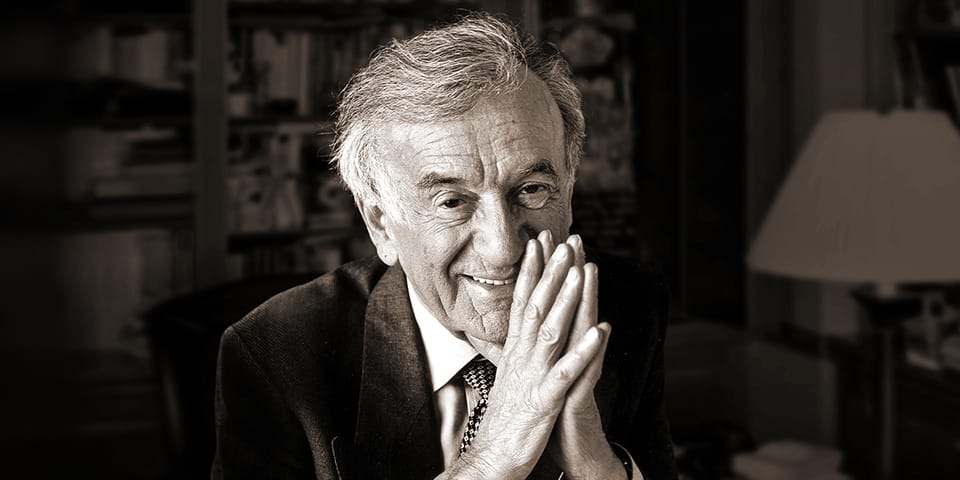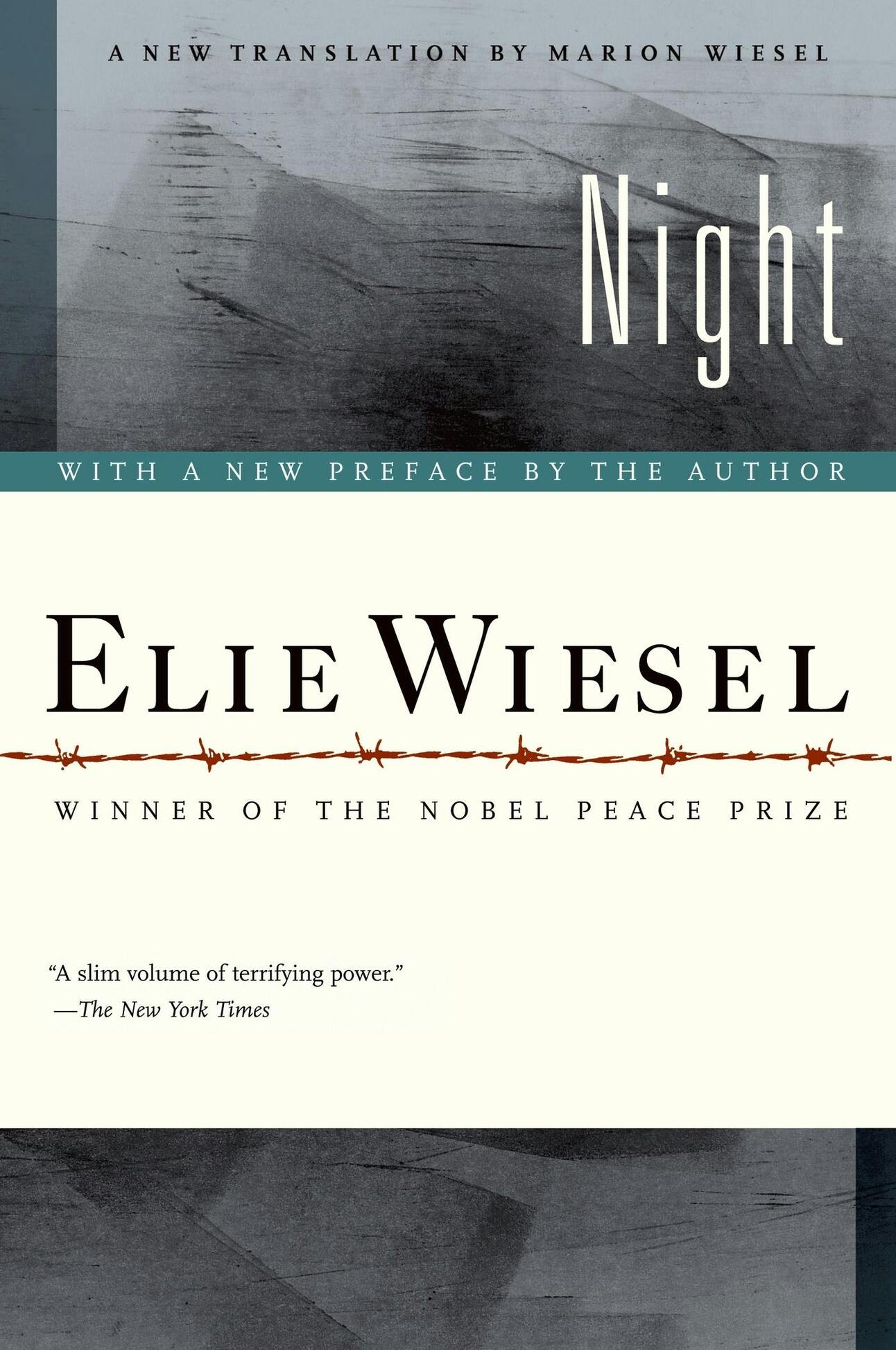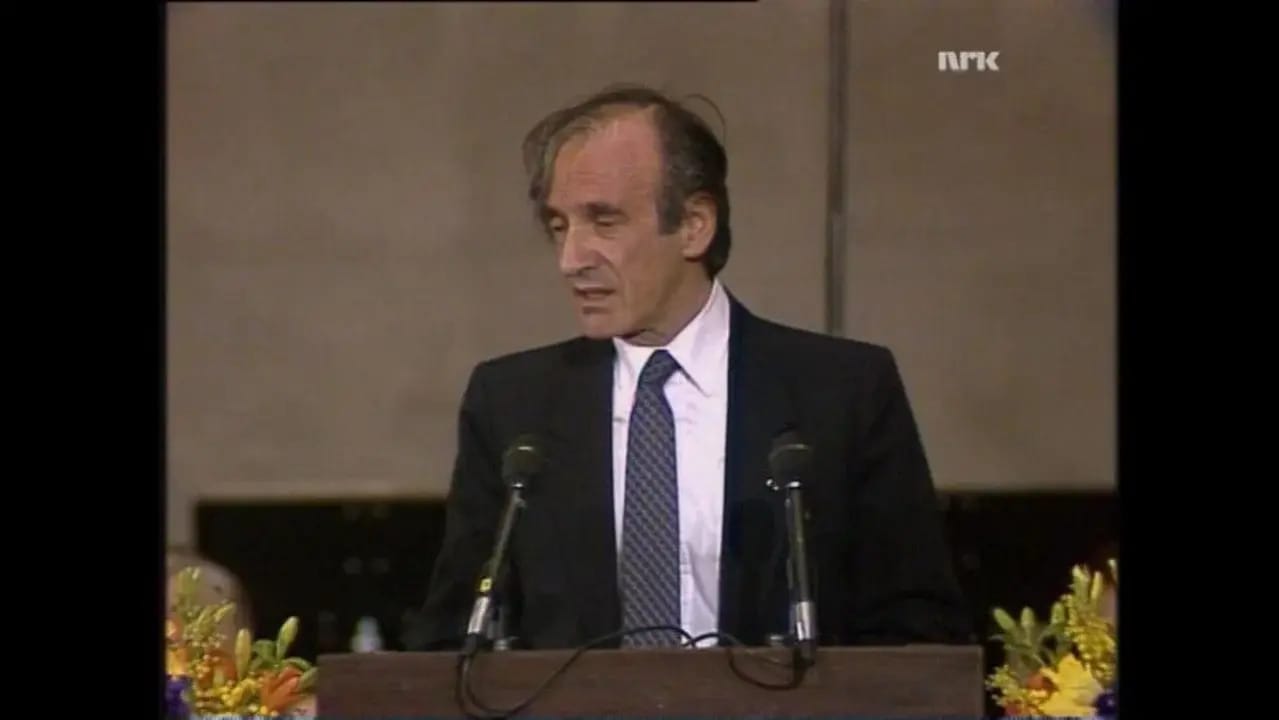- The Weekly Mensch
- Posts
- The Weekly Mensch: Elie Wiesel
The Weekly Mensch: Elie Wiesel
A testament to memory, moral courage, and the strength of hope in a world that must never forget
Us in a Nutshell
We are passionate about the lives, the impact, and the experience of Jewish baby boomers who have changed our world. From finance to the arts, we write about the stories of contemporary heroes who — significantly and meaningfully — changed the face of their respective industries, often starting with nothing but a legacy of exile. We tell their stories for the timeless lessons of intelligence, ethics, and resilience they underline. And we also share some fun anecdotes! Nathan Tob is a fourth-year student at the Queen Mary University of London. He studies Economics, Finance, and Management. Davy Sokolski is a third-year student at Columbia University in New York. He studies International Political Economy.
What is a Mensch?
Leo Rosten defines mensch as “someone to admire and emulate, someone of noble character.” Dr. Saul Levine writes in Psychology Today that a mensch’s personality characteristics include decency, wisdom, kindness, honesty, trustworthiness, respect, benevolence, compassion, and altruism.
Elie Wiesel’s Rapid Bio

Eliezer “Elie” Wiesel was born on September 30, 1928, in the town of Sighet, in what was then Romania (now Ukraine), to a deeply religious Jewish family. Raised in a Hasidic community, Wiesel’s childhood was filled with spiritual learning, Jewish tradition, and a profound sense of moral identity. From a young age, he was drawn to religious study and storytelling—two elements that would shape his life’s work.
At the age of 15, Wiesel was deported with his family to Auschwitz during the Holocaust. His mother and younger sister were murdered upon arrival, and his father died in Buchenwald shortly before the camp’s liberation. Wiesel survived, but the trauma of these events became the defining force of his life. After the war, he was taken to a French orphanage and eventually studied literature, philosophy, and psychology at the Sorbonne in Paris.
In 1956, while working as a journalist in New York, Wiesel published Night, a memoir of his Holocaust experience. Initially overlooked, the book would eventually become one of the most influential and widely read works on the Holocaust, translated into more than 30 languages. Over the course of his life, Wiesel wrote over 50 books exploring themes of memory, silence, faith, and the moral responsibility to bear witness.
Wiesel became a global voice of conscience, speaking out against genocide and injustice in places like Rwanda, Darfur, and the former Yugoslavia. He served as chairman of the U.S. Holocaust Memorial Council, received the Congressional Gold Medal and the Presidential Medal of Freedom, and in 1986 was awarded the Nobel Peace Prize, recognized for his unwavering message of “peace, atonement and human dignity.”
Elie Wiesel passed away on July 2, 2016, at the age of 87. He is remembered not just as a survivor and author but as a moral compass for generations. His life was a testament to the power of memory, the strength of the human spirit, and the urgent need to speak up for those who cannot.
Elie Wiesel’s Life Lessons
1. Memory is a moral duty
For Elie Wiesel, memory wasn’t just an act of looking back, it was a call to moral responsibility. As a child survivor of Auschwitz and Buchenwald, Wiesel saw firsthand the consequences of hatred, silence, and indifference. But what he carried with him was more than trauma; it was testimony. He chose to speak, write, and teach so that the world would remember not only what happened but also why remembering matters. His memoir Night, written with piercing honesty, gave a voice to millions who could no longer speak. “To forget the dead,” he famously wrote, “would be akin to killing them a second time.” One of the most powerful expressions of this came when Wiesel returned to Auschwitz decades later. A journalist asked him why he kept coming back. Wiesel quietly replied, “Because I always hear their voices. I owe them my presence.” He didn’t return to reopen wounds, he returned to ensure the world never forgot what those voices endured. It was not about dwelling in the past but carrying its truth into the future.
Wiesel’s life teaches us that memory is not passive; it’s a moral stance. In Jewish tradition, zachor (remember) is more than a word; it’s a commandment. Not just to recall but to act with awareness of what came before. Memory, in this sense, is moral clarity. It challenges us to keep our humanity intact in the face of injustice and to stay grounded in values that transcend time. Whether preserving family stories, standing against denial, or educating future generations, we uphold dignity when we remember with purpose. Remembering what matters people, principles, and history is what allows us to move forward with depth, purpose, and conscience.
2. Use your voice to elevate others
Elie Wiesel understood that surviving wasn’t enough; bearing witness was a responsibility. But more than that, he believed that the power of a voice is magnified when it is used in service of others. After the Holocaust, Wiesel didn’t just share his own experience—he made it his life’s work to speak out against injustice wherever it existed. Whether standing before world leaders or walking alongside protestors, he used his platform to call attention to forgotten victims of genocide, oppression, and discrimination. From Bosnia to Rwanda, from Darfur to Soviet Jewry, Wiesel lent his voice to those who had none, often challenging the powerful to act with conscience. One memorable moment came during a White House dinner in 1993, when Wiesel publicly implored President Bill Clinton to intervene in Bosnia, warning that silence was complicity. “We must always take sides,” Wiesel famously said. “Neutrality helps the oppressor, never the victim. Silence encourages the tormentor, never the tormented.” His message was clear: to be a bystander is to be complicit, and to have a voice is to carry an obligation. Wiesel’s activism wasn’t loud or performative; it was principled, rooted in the deep belief that moral clarity must be louder than political convenience. Even as he carried immense personal trauma, he refused to let the weight of his past quiet his empathy for others.
Wiesel teaches us that our voice is one of our greatest tools—not just to tell our own story but to uplift others. Using your voice with purpose can spark change, challenge injustice, or simply help someone feel seen. True leadership isn’t always about volume, it’s about the courage to speak up when it matters most, especially for those who can’t.
3. Hope is a choice even in darkness
For Elie Wiesel, hope was never naive optimism, it was a deliberate act of resistance. After surviving Auschwitz and Buchenwald, he bore witness to the very worst of humanity. Yet he refused to let despair consume him. He chose, instead, to believe in the possibility of goodness, of repair, of meaning. In his words: “Just as despair can come to one only from other human beings, hope too can be given to one only by other human beings.” One story that stayed with him throughout his life was from Buchenwald: a father sharing a crust of bread with his son, an act of love amid destruction. Wiesel often spoke of that moment as the embodiment of hope, not in the grand sense, but in the quiet insistence on dignity and care, even as everything else was taken away. That kind of hope, he believed, was not just emotion—it was a deliberate act of will, a quiet form of defiance against despair.
Wiesel’s life teaches us that hope is not the absence of pain; it’s the refusal to be defined by it. When choosing to believe in something better—and to act in service of that belief—we become bearers of light. Hope is not blind faith; it’s the quiet, persistent belief that our actions matter, even when the outcome is uncertain. It’s the decision to keep going.
The Quote of The Week
“The opposite of love is not hatred, it’s indifference”


Reply